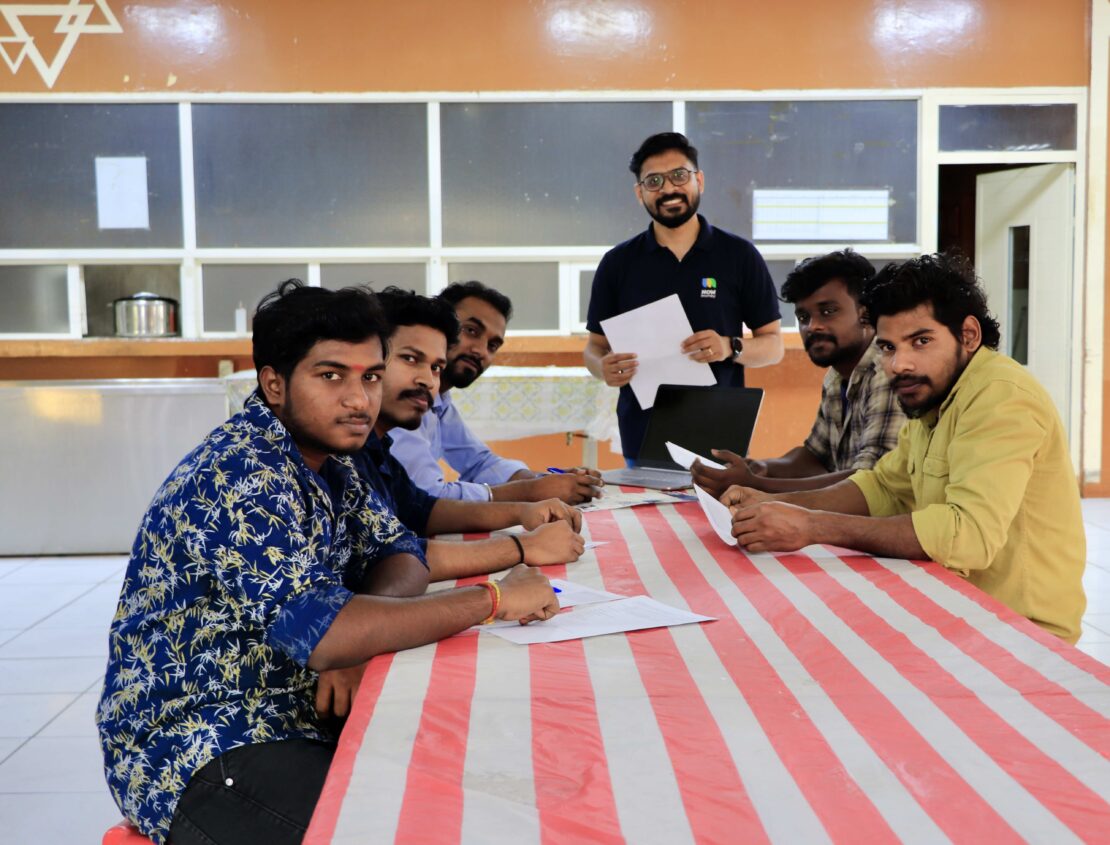Financial literacy enables people to make informed decisions about money. It helps you understand things like interest rates, taxation, and inflation so that you can better budget and save for the future. As such, it’s a crucial skill for the management of personal finances. But it also paves the way for wealth generation, as it’s key for understanding the financial markets and making smart investments.
And yet, in the UAE, the average adult financial literacy rate is only 38%. This is despite the fact that it’s one of the fastest-expanding economies in the world, with a GDP per capita of $42,536.
The reason for such a gap is the fact that nearly 90% of workers in the UAE are migrants. Among these, close to 60% are considered to be on a low income. And because of these low earnings, most don’t qualify for standard bank accounts in the nation’s more prominent banks.
Not having a bank account means not having access to the services that help people save for their future. It also means they won’t get the support that comes as standard when you’re a customer of a financial institution, or access to the up-to-date information that aids better financial decisions.
The importance of financial literacy
When people remain unbanked, they may withdraw all their earnings in a cash lump sum, rather than stowing a portion away in an account to accrue interest. Furthermore, they may fall prey to extortionate transfer rates when sending money home, simply because they don’t know there is an alternative.
But not having a bank account is only part of the problem. Migrant workers who have been historically alienated by financial institutions will have found alternative services that they believe in and rely upon. For example, many international workers in the UAE currently use cryptocurrency and blockchain technology to send money back to their home countries as there are zero transfer fees involved. But this process can leave them vulnerable to the fluctuating crypto market, such as with the 2022 market crash. Financial experts also warn that workers who are using this method for transferring money are more at risk of financial predators and money scams.
This means that the goal of banking the unbanked solves only half the problem. It doesn’t address the fact that many international workers lack sufficient education about money matters, or communicate effectively why and how they should use digital banking services.
Why should you promote financial literacy among your workforce?
When people fall prey to extortionate interest rates, it can increase their financial vulnerability while they lack the necessary knowledge to help them respond. This sometimes creates the apparent need for other loans or money schemes, essentially making their debt trap bigger and more difficult to escape.
All this can lead to feelings of hopelessness, anxiety, depression, and even panic. In fact, financial difficulties and mental health issues are often intrinsically linked. People in problem debt are three times more likely to have thought about suicide in the past year. And people with these kinds of money issues who are also experiencing depression are 4.2 times more likely to still have depression 18 months later than their financially stable colleagues.
When you promote financial literacy among your workforce, you’re actively helping your employees avoid the debt that can have such a debilitating effect on their health and wellbeing. You’re also working towards the Environmental, Social, and Corporate Governance goals by promoting financial inclusion and equality for all.
But there are advantages for your company, too.
Increased focus. Studies have found employees stressed about finances are more distracted at work. Depending on your industry, this can have a negative impact on their quality of work, their output, or even theirs and their colleagues’ safety.
By giving your workforce the coping mechanisms to deal with their finances properly, you can help improve their focus. And maintain your high quality, productivity, and safety standards as a result.
Improved engagement. People experiencing the mental health issues associated with money worries often become socially withdrawn. This can have a negative impact on team dynamics, internal communications, and customer service. And this can affect the overall culture and even your brand image.
By ensuring your employees have access to financial education and support, they can avoid making poor decisions that affects how they engage with others. This means they can bring the best versions of themselves to work each day, and contribute to your culture and your brand in a positive way.
How can you develop financial literacy in your workers?
The first step is of course to ensure your workers have access to a bank account. But since the establishment of the Wage Protection System (WPS) in 2009, many organisations are working towards this goal, if they haven’t achieved it already.
That said, there is a difference between a bank account and a digital bank account. While the former gives workers access to many online and in-person financial services, digital banking provides more advanced support and better accessibility for international workers.
And yet, workers with access to digital banking won’t automatically take advantage of the associated services that help them make better financial decisions. They may still struggle to use their banking solution, or not understand what a difference it can make.
NOW Money is the UAE’s first digital payroll and mobile bank service developed specifically for low-income workers. Our mission is to bank the unbanked by giving employers access to an affordable and efficient digital payroll system, while providing an accessible, full service mobile banking app for their workers.
This will enable companies to streamline their payments while also remaining compliant. And it will give your employees access to the information and support for better financial decisions that are so necessary for their health and happiness.
But even with this access, how do you ensure uptake?
- Firstly, we provide debit cards without minimum salary or account balance requirements, allowing workers of all incomes to get the tools and support they need.
- Secondly, we provide low-cost money transfer options, so international workers can make secure transfers and make their money stretch as far as possible.
- Thirdly, with workers in the UAE coming from over 200 nations, we understand that not everyone will be fluent in Arabic and English. As such, we offer our support and services in 11 languages.
- And last but definitely not least, we provide your workers with on-site financial literacy training. This will teach them not just how to use our mobile banking app and services—but why it’s so vital that they do.








